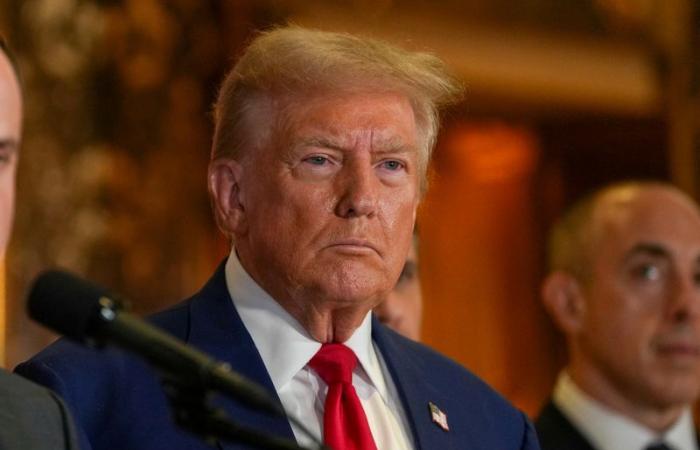Donald Trump has promised to “drill, baby, drill” to cut energy costs in half, a plan that has governments of emerging market oil producers shuddering, worried about dollar revenues, and filling them with hope poorer importing countries.
Concretely, Mr. Trump, the future president of the largest oil producer in the world, cannot completely control prices.
The United States has limited influence over the OPEC+ producer group, the Organization of the Petroleum Exporting Countries and its allies, and it does not have a state-owned oil company that Mr. Trump could order to increase production. .
But the uncertain economic outlook in the largest oil-consuming countries, notably China, and a potential oil supply glut have prompted investors to hedge against the impact of Mr. Trump's election promise.
“You will have very country-specific issues or challenges with falling oil prices,” said Thomas Haugaard, emerging market debt portfolio manager at Janus Henderson. “But more than half of the emerging markets investment universe are large oil importers. There will be winners and losers in this kind of shock.
Here's a look at which countries could stand to gain – or lose – if global oil prices fall to around $40 a barrel, just over half of current prices.
PAIN OF PRODUCERS
The balance sheets of global producers, including Saudi Arabia, OPEC's top producer, would in theory be most affected by the fall in oil prices.
But the Kingdom, which has several sovereign wealth funds and easy access to global borrowing, is to some extent sheltered.
Following the collapse of oil prices in recent years, Saudi Arabia, like other Gulf countries such as the United Arab Emirates, has sought to diversify its economy and fuel local debt markets .
JPMorgan, however, noted that a fall in prices could force it to further scale back megaprojects such as the $500 billion city of the future, NEOM.
For poorer producers, such as Angola, Ecuador and Nigeria, falling prices would be more damaging. Most of them rely on oil for dollars and need prices close to $100 a barrel to balance their budgets.
“They don't have economies to fall back on,” said David Rees, senior emerging markets economist at investment firm Schroders, adding that these countries were already in debt and had limited access to borrowing. affordable.
“If you have a big decline in your core revenues, this type of debt coverage only gets worse,” he added.
This pressure can also lead investors to ignore positives, such as Nigeria's sweeping fuel subsidy and foreign exchange reforms, or Angola's eagerness to repay its debts.
“When oil prices come under this type of pressure, investors tend to lump all oil-producing countries together,” said Razia Khan, head of research for Africa and the Middle East at Standard. Chartered.
BIG SAVINGS?
For importers, a drop in the price of oil could reduce inflation and reduce demand for foreign exchange. China spends just under $300 billion importing oil, followed by India with almost $200 billion.
Smaller importers, including South Africa, Indonesia, Kenya, Pakistan, Thailand and Turkey, could also benefit.
“If you put $40 (oil) in and assume $40 for every day, instead of average energy inflation of about zero over the next year, it's down to minus 15,” said Mr. Rees, of Schroders.
The benefit could be greater for emerging economies that subsidize fossil fuels: Venezuela and Iran spend more than 20% of their GDP on subsidies.
CAUTION NOTE
Lower prices alone do not guarantee economic relief, especially if accompanied by the trade war that Trump's threats of tariffs could trigger.
Analysts say this could reduce global economic growth and cause a demand shock, with negative ramifications around the world.
South Africa, an exporter of platinum, coal and iron, would be badly off if global commodity prices fell further.
Additionally, the weakening balance sheets of the world's richest oil producers could have knock-on effects.
Egypt, Kenya and Pakistan – indebted importers who have resorted to foreign financing in recent years – would be hit if Gulf producers such as the United Arab Emirates close their checkbooks while facing a decline prices.
Lower oil prices could also delay the transition away from fossil fuels, hurting the long-term prospects of some emerging energy-importing markets and increasing the climate change-related costs they face.
“A significant decline in prices may be associated with periods of depression in global economic activity, which is not good for emerging markets,” said Alejo Czerwonko, chief investment officer for Americas emerging markets at UBS Global Wealth Management. “So the reasons why prices are lower are important.






